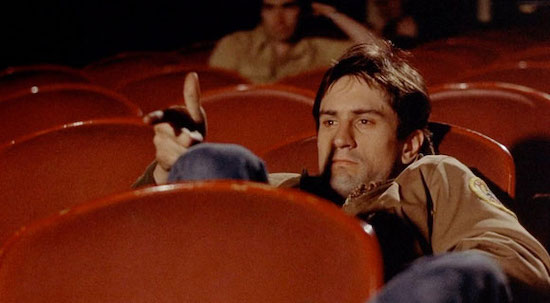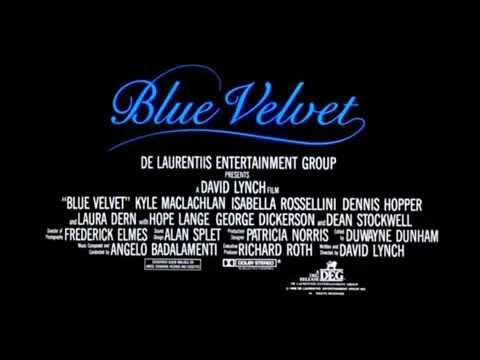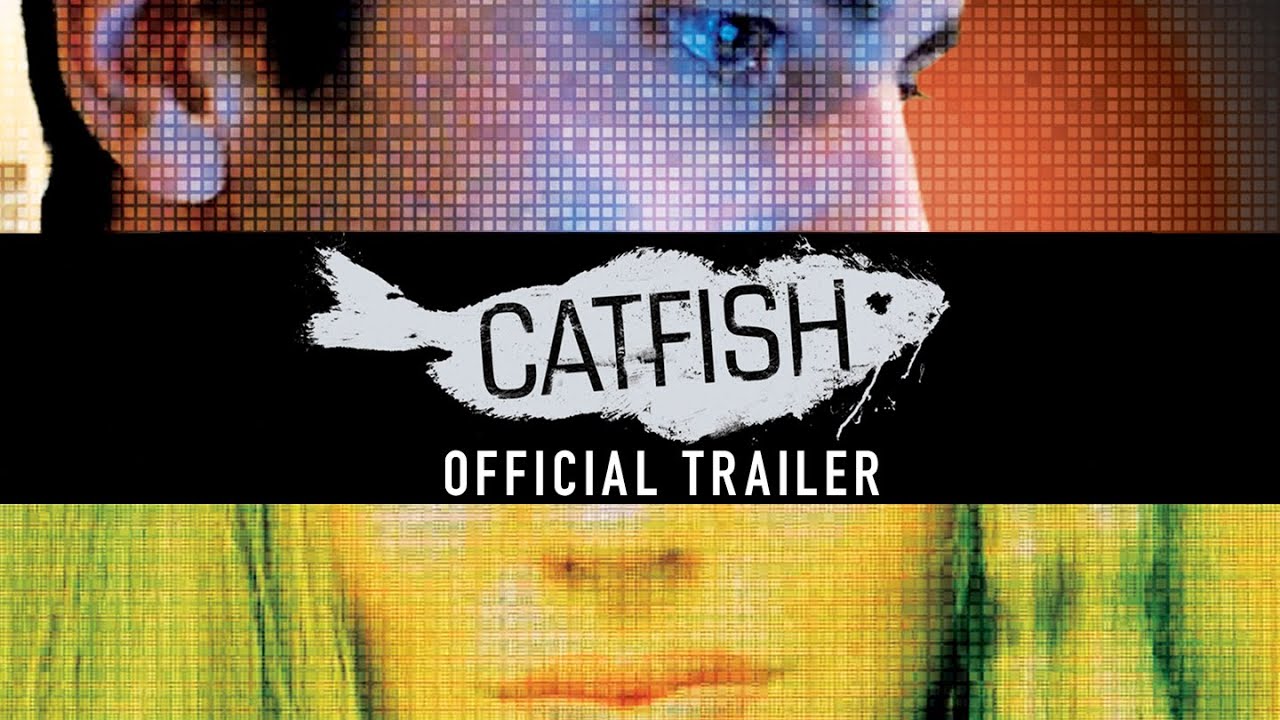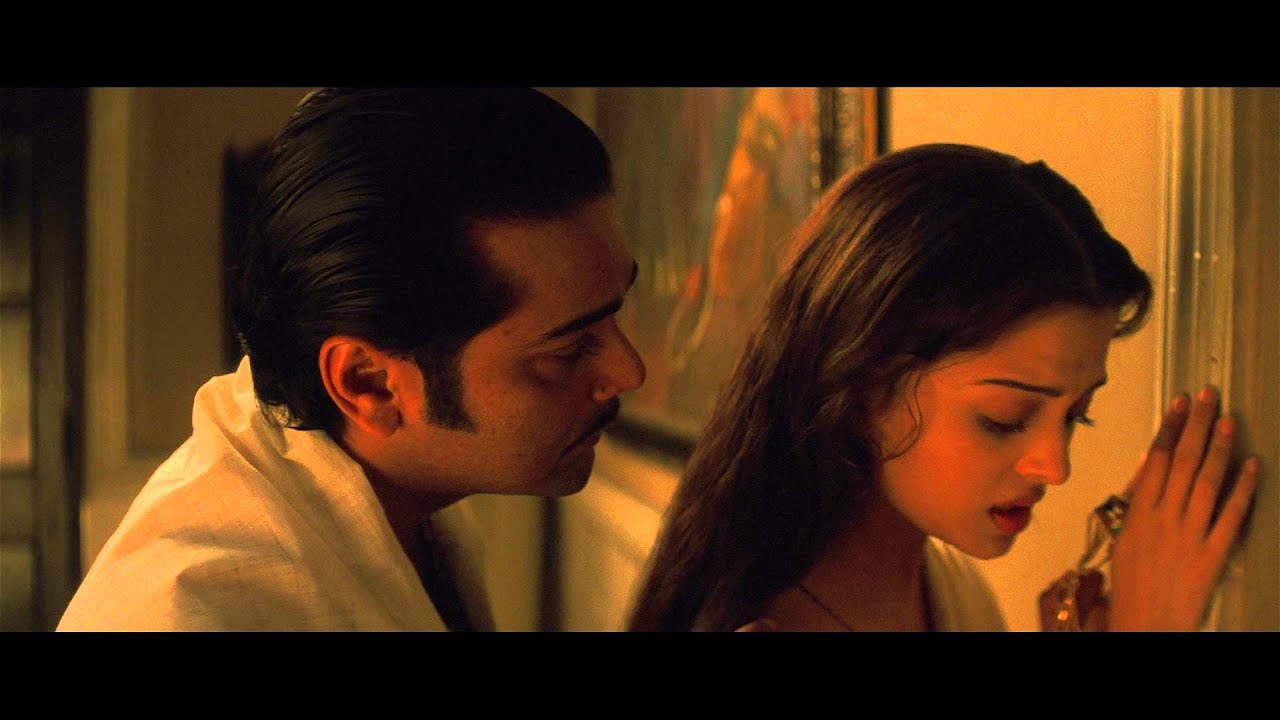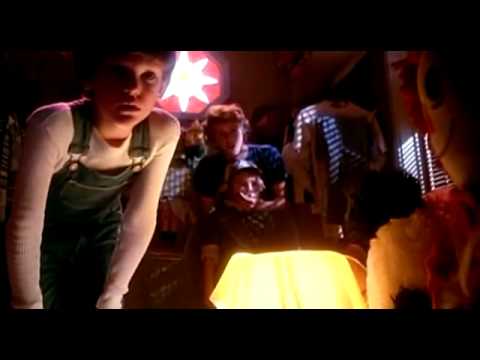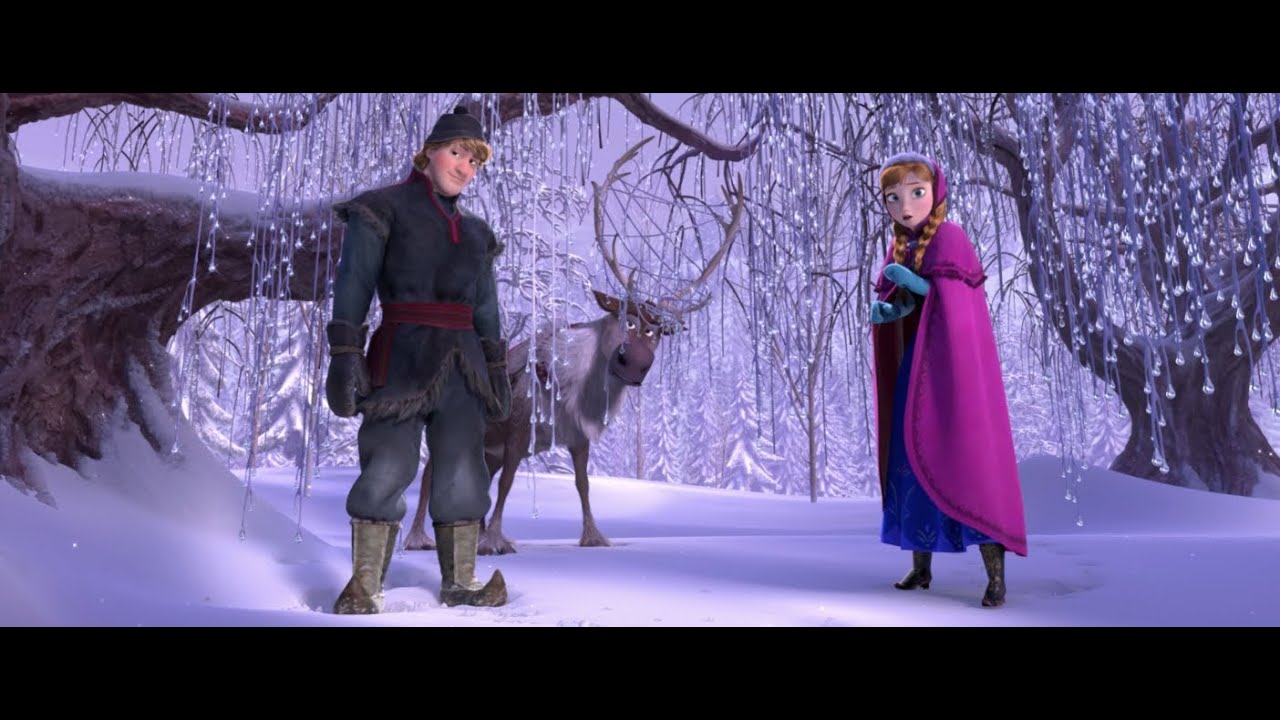Over the last 14 months, we have been yearning for the big screen and looking back on the memories of brighter days spent in cinemas with a sense of bittersweet nostalgia. For me, there was also a big element of fear that these experiences would never return. But now that cinemas reopen next week, I finally feel safe enough to look ahead and also to think back to the moments that make it so important to keep going at all.
And so I asked our esteemed Quietus contributors one simple question: what is your favourite cinema memory? Not your favourite film, not your favourite cinema, but a time you remember seeing a film on the big screen, a moment or a feeling which could have only existed at that time, in that place.
As you’ll see, the answers take us all over the world to see all sorts of classics. Metropolitan film festivals, local multiplexes, kids’ favourites and arthouse discoveries. It’s as varied and exciting as I would have hoped – testament to the bold, ever surprising magic of cinema. Please enjoy reading – and I’ll see you at the movies. – Ella Kemp, Film Editor
Blue Velvet, Philadelphia Film Center, Philadelphia, 2019
Before the pandemic, I spent most of my recreational time going to the cinema getting stoned with my friend Andy (hi Andy). So, the night that we’d bought tickets to see a 10pm showing of David Lynch’s Blue Velvet, one of our favourite films, being screened at the Philadelphia Film Festival, it was another fantastic opportunity for us to do so. We’d smoked his pen just outside the Film Center before we went inside, found our seats, and then I left to go to the bathroom. Understand, I’m prone to getting somewhat freaked out when I’m high depending on the scenario I’m in, though usually never at the movies, and the zero crowds and near-empty cinema gave me the perfect conditions for a serene experience.
But when I returned from the bathroom, ever-wobbly and totally disoriented, Knives Out director Rian Johnson was suddenly there, at the stage, feet away from us, speaking to our absurdly desolate auditorium. In retrospect, it really wasn’t that bizarre of a situation – Knives Out had premiered there that same night – but in the moment, it felt like my head was going to explode. It felt like I’d stepped onto another planet. Here I am, zonked out of my gourd, and there in front of me is a major filmmaker speaking on a tiny stage to a hilariously small amount of people in a giant cinema, who are quite possibly also stoned, at 10 o’clock at night. It was amazing. – Brianna Zigler
Catfish, Union Square Regal, New York City, 2010
I was so taken in by the trailer which teased a thriller twist to this online identity doc, that I mounted a full-court press to catch it on opening day, only to be met with indifference by everyone I asked to come with. Going to the movies alone felt unseemly to me then, I’d never done it before and thought it awkward, like breaking an unwritten norm. Its world of rituals — splitting popcorn, holding hands, post-movie drinks — felt built for at least two. I paced the lobby that day not knowing how to act, the very nature of buying a single ticket felt shameful.
There were just ten of us in that cinema, sharing quizzical glances at first, some anxious laughter, and then full-on reactions at each turn — a little world of stragglers unlocking a puzzle together. For all of Catfish’s flaws, and there are many, its core revelation of a woman struggling to fit in and sublimating a sense of self to make a human connection fit so neatly into my first solo outing. My friends were great, but walking out of that cinema I wondered if they would have shrugged at a film this easy to shrug at — I mean, just look at Nev’s gratingly affected camera presence. But it was more than the movie, it was the camaraderie in that room that moved me, and made me wonder how many movies I missed instead of going alone, and more than that, how much of myself was I holding back? Years later I would rewatch Catfish at home, and sure enough, the power of that screening was lost. Whatever magic existed in that janky cinema was left there, a fragment of intimacy shared between strangers in the hollow of a multiplex. — Igor Fishman
Chokher Bali, Priya Cinema, Ballygunge, Kolkata, 2003
From Ballygunge to Thakurpukur, the Kolkata movie houses were washed daily. The latest film posters might show Swiss alps and mini-skirts, but the same stories, of mistaken identity, grieving mothers and long-lost brothers, were retold to generations. As a girl used to the Purley Way Odeon, it was the excitement that I remember, rather than any one film – and that smell, of indigo starch, hair oil and peanuts roasted by vendors serving the queue. My cousins and I, three girls, would dodge men’s prying fingers to swipe bags of hot nuts, while my uncle, tossed on a sea of yells, bagged air-conditioned seats from the caged ticket office.
Madhuri Dixit, Kareena Kapoor, Bipasha Basu: we fell in love with them all. The real stars, however, were the audience members, singing the songs and lobbing wisecracks from the gallery. Yet the respect for serious films ran deep. A hush fell, for example, watching Aishwarya Rai in Rituparno Ghosh’s painterly version of Chokher Bali. The cinema was a place where the community worked out its contradictions. The sexy freedom of starlets might clash with our real-life threat of molestation; but when we poured down the stairwell as one singing mob, the tensions seemed, for that twilit hour, to have drained away. – Soma Ghosh
E.T. the Extra-Terrestrial, ABC Savoy, Luton, 1982/83
I remember the size. Of the screen and the room. I remember the light. How it changed and covered the space, illuminating it entirely or casting huge shadows. I remember the bus ride. I was in my dressing gown, my Dad clutching my slippers in a shopping bag. I remember huddling up close to him on the journey and in the auditorium. I’m not sure I remember much of the film, save E.T.’s giant face in a huge close-up, though I may have filled that in when I saw the film again when I was older.
I remember the sensation. I carry it in my being and I am convinced that the power of that sense memory, one of my earliest ever memories at five years old, is what set me on a life path where I make, write about, talk about and teach movies. Like an addict, I’ve tried to recreate that seminal high, and had more accessibly memorable moments, and the feeling of that first ever cinema trip to see E.T. on release in late 1982, early 1983, is what keeps me going back to cinemas and what will send me back again. – Neil Fox
Frozen, Prince Charles Cinema, London, 2014
A few years ago, a friend and I went to a Frozen singalong in central London. All the YouTube ads made the event look unmissable – hordes of 20-somethings parading out of the cinema, semi-drunk and cosplaying as Anna, Elsa and even the reindeer, their cheeks awash with sparkly silver glitter. “It’s so much fun!” a few of them chorused. “We’ve literally had the time of our lives!”
Convinced this would be a decent way to spend an afternoon, we snapped up two tickets. Neither of us clocked the obvious: that our screening of choice was slap-bang in the middle of half-term. We turned up at 3pm, two tins of G&T tucked discreetly into our bags, only to find the place teeming with toddlers and harried parents giving their kids a mid-week treat. Not exactly the cohort we’d expected.
Trying not to stand out in a sea of shrieking pre-schoolers, we found our seats in the centre. The compere (slash only other person our age who wasn’t a parent) took to the stage and trilled out: “Hello, boys and girls!” As the oldest boy and girl in there, we sunk down in our chairs and tried not to draw attention to ourselves. The gin remained untouched throughout.
That said, Frozen is infectious, and before long, we were belting out ‘Do You Want To Build A Snowman?’ just as boisterously as the kids. It wound up working out, but take note: if you ever find yourself in a similar situation, don’t yell “Oh fuck!” when that chandelier nearly crushes Elsa in the battle scene. – James Morton
The Greatest Showman, Everyman Cinema, Reigate, 2017
At the Everyman in Reigate, a prim and polite little town in Surrey, people usually kept to themselves. Screenings would rarely sell out, and when they did, it would be because five different yoga mummies had brought their five offsprings and their five billion friends to the Saturday morning screening of Peter Rabbit. Still – people usually kept to themselves.
Except on one weekday evening, a few weeks after The Greatest Showman first played. It was a big hit – I was an usher, and will not hide that I jumped at the chance to clean out the screens so I could shriek along to ‘Rewrite The Stars’ as the credits rolled. But this story isn’t about my (thrice) experience watching the film. This is about one particular day when I said goodbye to the three people who, weeks on, were still going strong.
A man, who I will not attempt to age specifically, but was certainly above Hugh Jackman’s age bracket, I’d say, walked out quietly and gave me a courteous nod. And then two young women followed a little after, both elated and slightly panicked. They wanted to ask me a question. I, an unabashed expert of this ridiculous film, was ready. "That… that was a singalong screening, wasn’t it?" they asked me. Now, I don’t know if I have made this clear enough, but Reigate is the last place on Earth that anyone would choose to attend a singalong. People must be quiet and nod courteously and then go home.
You can guess what happened – and if you can’t: it was not a singalong screening. these poor, peppy women forgot where they were, and fully leaned in to what the film certainly asks of you: a full-bodied, unapologetic karaoke session. Except it was a two-man band, while Hugh Jackman’s ageing uncle, or whatever, sunk further into his seat. I love the film, but I will never love anything more than the time when I didn’t watch it. The idea of this echoey auditorium holding glee, shame, song and sheer humiliation among these three people, on that quiet weekday evening in Reigate. – Ella Kemp
Hard Target, The Castle Cinema, London, 2019
It’s late July 2019 and I am sweating. Not just because the record-breaking heat has turned the streets of London into a kind of torrid obstacle course. But because it’s my partner’s 30th birthday, and months of secretive planning are about to pay off. As we enter the Castle’s screening room, my girlfriend is met by 30 screaming members of her family and friends. We take our seats. First come the trailers. In the months leading up to today, I asked invitees to shoot birthday messages in the form of fake film trailers attuned to my girlfriend’s tastes. Cue half an hour of drag performances and high-concept parodies, a peerless send-up of What Ever Happened to Baby Jane? and even a hand-painted animated short. After this, with everyone’s spirits and liquor levels sky-high, comes the undisclosed feature presentation. John Woo’s masc-action masterpiece Hard Target goes down about as well as a film in which Jean-Claude Van Damme punches a snake in the face possibly could.
Thanks to the help of my co-conspirators and the Castle’s staff, the evening went as wonderfullly as I’d always envisaged. It was as thrilling to throw a surprise party at a picture house as it was empowering to showcase our friends’ creativity on the big screen. There was only one person in the room that really mattered though. Want to show someone you love them? Hire your local cinema. –Sean McGeady
The Hateful Eight, Music Box Theatre, Chicago, 2015
Like him or lump him, Quentin Tarantino’s fetishistic adherence to old school cinematic process results in experiences wholly specific to the medium. On a suitably wintry afternoon in Chicago — New Year’s Eve, in fact — his 70mm roadshow presentation of The Hateful Eight at the Music Box Theatre served as a masterclass on why films should never be relegated to the realm of streaming services and set-top boxes.
The star of the show was, of course, the 70mm projection, the scale a perfect pairing for the film’s wide snowy vistas, and the grain an added texture for the claustrophobic interiors. But only discussing the technical aspect belies the heart of sharing a cinema.
The queue — usually a rarity outside of exclusive film galas — was a rumour mill working at full bent, the film’s preceding Ennio Morricone overture led to a quiet rumble of bemused anticipation, and when the first pistol was fired only for the film to cut to intermission, the suitably over-the-top American audience response was charming — for once. Even the kitschy souvenir programme still occupies a small pride of place on my bookshelf.
Tales of disaster abound from the roadshow events, as multiplexes faced malfunctioning projectors and melting film reels — though it bears saying that the experience at the Music Box was excellent top-to-bottom — but, as the end of Inglourious Basterds proved, there’s magic in the chaos of film projection. – Blaise Radley
Hereditary, Regal Cinemas, Silver Spring, Maryland, 2018
There is nothing like watching a horror movie in a packed movie theatre on opening weekend. The air feels almost electric as everyone takes their seats and excitedly discuss what’s to come. It is a communal experience as we are all readying ourselves for terror. The lights go down, the cinema takes a deep breath, and we dive into a land of jump scares and occasional laughter.
No theatre-going experience captures that electricity like when I saw Ari Aster’s Hereditary on opening night. Ads had declared the film scarier than The Exorcist, so everyone buzzed with anticipation after hearing that claim. But none of us could predict the collective trauma we all were about to experience while watching that film. We all gasped and let out moans of despair at a gruesome shot involving a horrifying head. When we all began to realize Toni Collette was crouched on the ceiling, a wave of yelps of fear swept across the theatre.
We may never see each other again, but we all formed a special bond that night, one inextricably linked to piano wire, dead pigeons, and Paimon. – Mary Beth McAndrews
The House of Mirth, Film At Lincoln Center, New York, 2019
I turned 22 the summer of 2019, and –in a decision that should come as no surprise – decided I’d go to the movies to celebrate the day. Playing as part of Film At Lincoln Center’s Another Country: Outsider Visions of America, Terence Davies’ Edith Wharton adaptation (on 35 mm, no less), The House of Mirth presented itself as the most logical choice. A print of a project by one of the most vital filmmakers of the last three decades and change that otherwise languished in non-streamable purgatory? The tickets for my girlfriend and I practically bought themselves.
Of course, the significance of this particular moviegoing memory is bolstered by the film in question ascending to “new favourite” status almost immediately after walking out the Walter Reade, but there was a palpable modesty that coursed throughout the night, one that stood in pleasant contrast from the sprawling institution that housed The House of Mirth for those two hours. It was sparsely attended, which could be attributed to the time of year, or the fact that it was late on a Sunday night, but as we sat scattered around a screening room that can accommodate what then felt like ten times more than those present, but within this momentarily enacted bubble were a handful of people ready and willing to follow Davies, Wharton and Gillian Anderson down one of the most heartrending falls from societal grace in all of literature, and resultantly, cinema. – Patrick Preziosi
Little Women, AMC 309, North Wales, Pennsylvania, 2019
On Christmas day, 2019, I went to see Little Women with my parents. I remember at the time having middling expectations for Greta Gerwig’s second film – I enjoyed Lady Bird quite a bit, but it didn’t leave a big impression on me. And despite the overwhelmingly positive critical and audience response, Little Women wasn’t the type of film I’m usually drawn to. So I was thrown when, not only did I find myself fully falling into this picture, but it affected me to an emotional degree I hadn’t felt in quite a long time – by that I mean I was sobbing buckets by the point of Beth March’s death.
I cry readily during films and at occasionally inane moments, but not to this extent – this was disgusting, messy, and uncomfortable. Not only was I crying an absurd amount, but I was accumulating so much snot that it was getting hard to breathe. It was reaching the point where I had waited too long and I would need to inhale it all at once, but I kept putting it off for fear of disturbing the quiet cinema and being made fun of by my mum sitting next to me. But eventually it became too much to bear. I had to breathe. I sniffed, it made an ungodly sound, and in our hushed auditorium I heard only my mom utter one word: “Jesus.” – Brianna Zigler
Magic Mike, Odeon Cinema, Lincoln, 2012
I rarely enjoy audience outbursts during film screenings, but Magic Mike was made for them. In Steven Soderbergh’s 2012 drama, loosely based on the exploits of leading man and former stripper Channing Tatum, an imperial line-up of beefcakes including Tatum, Matt Bomer, Joe Manganiello and Matthew McConaughey play strip artists who regularly bare their well-oiled bods before rooms full of screaming customers.
The packed screening of the film some friends and I showed up to on its release sounded little different. All throughout, the (90% female) audience chatted and laughed among themselves; they squealed every time an innuendo was made, an item of clothing was shed, or Channing broke into one of his undeniable dance routines. It was like being part of a hen do 300-strong.
Watching it again later at home, Magic Mike didn’t feel like the kind of film to warrant such a response; instead it seemed like the story of one hunky man’s quest to escape his hollow, hedonistic life, with some sexy shenanigans and a peak-McConaissance Matthew McConaughey sprinkled in, sure, but all of it handled in that coldly detached Soderbergh style. Which is another way of saying: for me, the cinema made Magic Mike. – Brogan Morris
The Men Who Stare At Goats, Cineworld, Glasgow, 2009
Whenever and wherever I saw it, The Men Who Stare at Goats was probably always going to work for me. I love a big studio comedy that works on a slightly weirder wavelength, and this one had serious “Coen Brothers Lite” vibes thanks to Jeff Bridges’ turn as a Lewbowski-esque military adviser and George Clooney pulling out his well-honed but less-seen deadpan nutcase shtick.
But what elevated my first screening to a whole other plane was the presence of a stranger a few seats away from me who had the greatest laugh in the world. Every punchline sent one of his joyful, bellowing laughs bouncing around the room, and every time it proved unfailingly contagious, sparking the rest of the room into a second giggling fit, like a comedic aftershock.
The movie would tell a joke, we’d laugh, he’d laugh, and we’d laugh all over again. All through the movie. This wasn’t a small, intimate screening either – a major multiplex room full of strangers who all found themselves pulled together into a shared moment for 94 minutes. And then the credits rolled, and the man who catalysed it all wandered wordlessly back out into the world. – Ross McIndoe
Moonlight, BFI London Film Festival, 2016
It was only in my third year of university that I went to London Film Festival for the second time, having been conscious that it existed but never really motivated myself go. As it would come to pass, I picked well for my sophomore venture: off the back of its unanimous acclaim at TIFF, I got tickets for my friend and I to see Moonlight at, I think, its last show, in the rickety pop-up screen at Embankment Garden. From the minute "Plan B" flashed onto screen, followed by the introduction of Mahershala Ali’s Juan – a crown perched on the dash of his murky blue lowrider, because this man is, crucially, cooler-than-cool – the cinema felt electric. The anticipation was tangible.
I don’t think any of us knew we were about to witness history, but that we all did; not a soul in that ramshackle church would leave as anything but disciples at the altar of Jenkins. I’ve watched plenty of great films at festivals: the following LFF I saw 120BPM and Call Me by Your Name on the same day and wept to both, my sobs to the latter shared by the older lady perched next to me. (That’s the epitome of cinemagoing: communal crying.) But nothing since has felt as though I had left changed, thinking: my God, is it going to get better than this? I still feel as though I can reach out and feel the tension I felt, and always feel, in the film’s last 10 minutes, when Chiron is so desperate to relinquish a snarling demon from his shoulders, and then: You’re the only man who’s ever touched me. In an instant, tragedy dissolves. The waves wash against the sand of a distant beach. A boy watches on. – Jack King
Oh Mercy!, Théâtre Claude Debussy, Cannes, 2019
Cannes 2019, I enter the press screening for Arnaud Desplechin’s Oh Mercy! It’s late in the festival. Attendees mostly scattered and debilitated. A general state of exhaustion, fugue and ill-humour. Before the showing starts, I notice one journalist berating another in the gallery of the theatre. Something about a seat taken, informally reserved for someone else. The hectoring is becoming more severe and antagonistic. An uneasy silence spreads like a pall over the audience. As the angry critic’s loose fingers edge closer to the fearful critic’s ashen face, I, the ultimate defender of the disinherited, intervene with three deep, guttural commands.
One: "Oi, leave him alone." Two: "Sit down." And three, a little anticlimactically: "Behave yourself!" I stare at him with controlled, righteous fury. He leaves, defeated (and subsequently has his pass taken off him by security). I spend the rest of the festival shrilly informing everyone about what I’ve done, diluting the pure, noble act of heroism one forlorn retelling at a time. Now, the tale exists forever, etched in this small capsule. As for the film, I left after about half an hour or so, failing to understand the rehash of procedural tropes, determined exposition and stunted dramaturgy. – Joseph Owen
Parasite, Grand Auditorium Louis Lumière, Cannes, 2019
On the shores of the French Riviera in a cinephilic dream, nestled into the Palais among a thousand others for a smoking hot Cannes premiere, I tried to clear my palate for Parasite. Yes, it was one of the most anticipated of the festival, but it directly followed what was perhaps the other most anticipate title: Once Upon a Time in Hollywood. But, as the Palme d’Or suggests, Parasite would steal the show on May 21, 2019.
I was, initially, unsuccessful. The balmy LA sunshine of the ’60s was still swimming in my head when Bong Joon-ho’s film opened on the Kim family home, phantom Cliff Booths flashing across the same screen I’d just seen him on. It took a minute to get into Bong’s rhythm, but once it was in the air, it was contagious. Giggling turned into laughing turned into howling gasps turned into compulsive eruptions of applause, like the kind you hear about at Cannes but never believe. But these were in the middle of the movie, all the explosiveness of a 10-minute standing ovation packed into sporadic bursts. I couldn’t tell you if it happened five times or ten. We were transfixed, merely reacting. There was an electricity in the air even when things were still, and a galvanizing unity in the seemingly universal adoration among the 1,100 of us in the room. We sat perched on our seats in a perpetual state of shock and delight, our collective experience woven into something unforgettable. – Luke Hicks
Slack Bay, French Institute, London, 2017
I was sitting in the plush Institut Français cinema, silently judging each advert before the film like I normally do, when suddenly a home video came on. It was a love story; photos and videos from travelling the world as a couple, exploring new terrains, discovering true companionship. Could this be an advert for LLoyds Bank? Was I about to read a strapline across the screen: start your journey now?
No, this wasn’t yet another sly sentimental advertising campaign playing on my emotions. The lights went up, one woman got down on one knee, and her girlfriend said yes. We clapped and cheered and cried, as they shared their love with the cinema audience in one of the most heartwarming, elaborate but also understated displays of affection. I was less moved by the film, Bruno Dumont’s black comedy Slack Bay. I’ve heard some people love it, but there’s certainly something else from that cinema experience which I’ll always remember. – Olivia Neilson
Spring Breakers, Salle Grande, Venice, 2012
Rowdy outpourings at film festivals can be perfunctory at the best of times. So often drummed up beyond recognition retroactively online, these unavoidable phenomena, most notorious in Cannes, seem to grow only more self-aware as the years roll by. That said, when my feeble mind inevitably turns to sludge I presume I will still somehow remember the sound of a thousand sharp intakes of breath in the Salle Grande in Venice when James Franco’s character in Spring Breakers, a greaser modelled on the corn-rolled late-naughts Texan rapper Riff Raff, tinkled the opening piano keys of Britney Spears’ immortal ‘Everytime’.
It’s desperately grim to contribute to this list with nods to international film festivals, yet so much of my cinemagoing life in the last decade has revolved around those things. When considering the moments that stand out, the ones I will forever relive like a flipbook in my brain, it is those exact communal outpourings that appear most vivid: the ecstasy of the Cannes crowd when Sandra Hüller reached for Houston’s upper octave in Toni Erdmann; the palpably nervous and hopeful electricity that runs through an audience before some new Terrence Malick, or whatever; but always the Lido in 2012 and Harmony Korine’s hyper-real Floridian love letter to a great ballad. The once enfant terrible sat just a few rows ahead. I was 22, half-cut, and very alive. I miss this. – Rory O’Connor
The Raid 2, Showcase Cinema, Walsall, 2014
When Gareth Evans set about making a sequel to his immensely popular Indonesian action flick The Raid, he may have expected to inspire a few viewers to take up martial arts – but probably not whilst the film was still rolling.
On a particularly chilly March night on an industrial estate in the Black Country, that’s exactly what happened – for the entire two-and-a-half-hour runtime. A group of kids, no older than 16, occupied the back row. Once the action started, so did they. The aisles became their battleground as every punch, kick, elbow, knee and slam depicted on the 20-foot screen was noisily reimagined in the darkness of the cinema.
At the time it was annoying beyond belief but now, with over a year spent away from the big screen, it serves as a reminder of the power of cinema. Because The Raid 2 is not a great movie but it was inspiration to those kids who now all wanted to be Iko Uwais. Playfighting in the cinema was a powerful visceral reaction, just like crying or laughing, and in a distorted way, it was the purest possible response to the film. There has never been another screening like it. – Sam Moore
Ratatouille, Acton Vue, 2007
The local cinema is a great place to take your children. You get to share – briefly, vicariously, in the moment – in the wonder and excitement of your children’s world as it widens a little. But sometimes it’s complicated.
Ratatouille. A feel-good film about a French rat named Remy who dreams of being a chef. What could be more delightful? For us, not much. For a woman a few rows back, quite a lot. As it turned out, she hated rats. How could we tell? Well, whenever one of the film’s many rats did something rat-like, she expressed her revulsion at high volume. Oh my God, she shrieked, when rats scurried across the kitchen floor, say. That’s disgusting. EUGH. It was as if she could feel rats around her feet between the seat rows.
At first, it was funny. Then it was annoying. Then the horror kicked in: I suddenly saw what she meant. The rats became hyper real. I imagined them in our kitchen at home. Swear to God, I shuddered. Remy – all rat and no Roux brother – went completely sour. Every other Pixar film from those days, I’ve seen countless times. Ratatouille I’ve only seen the once. I just can’t get it past the gag reflex. – Mathew Lyons

